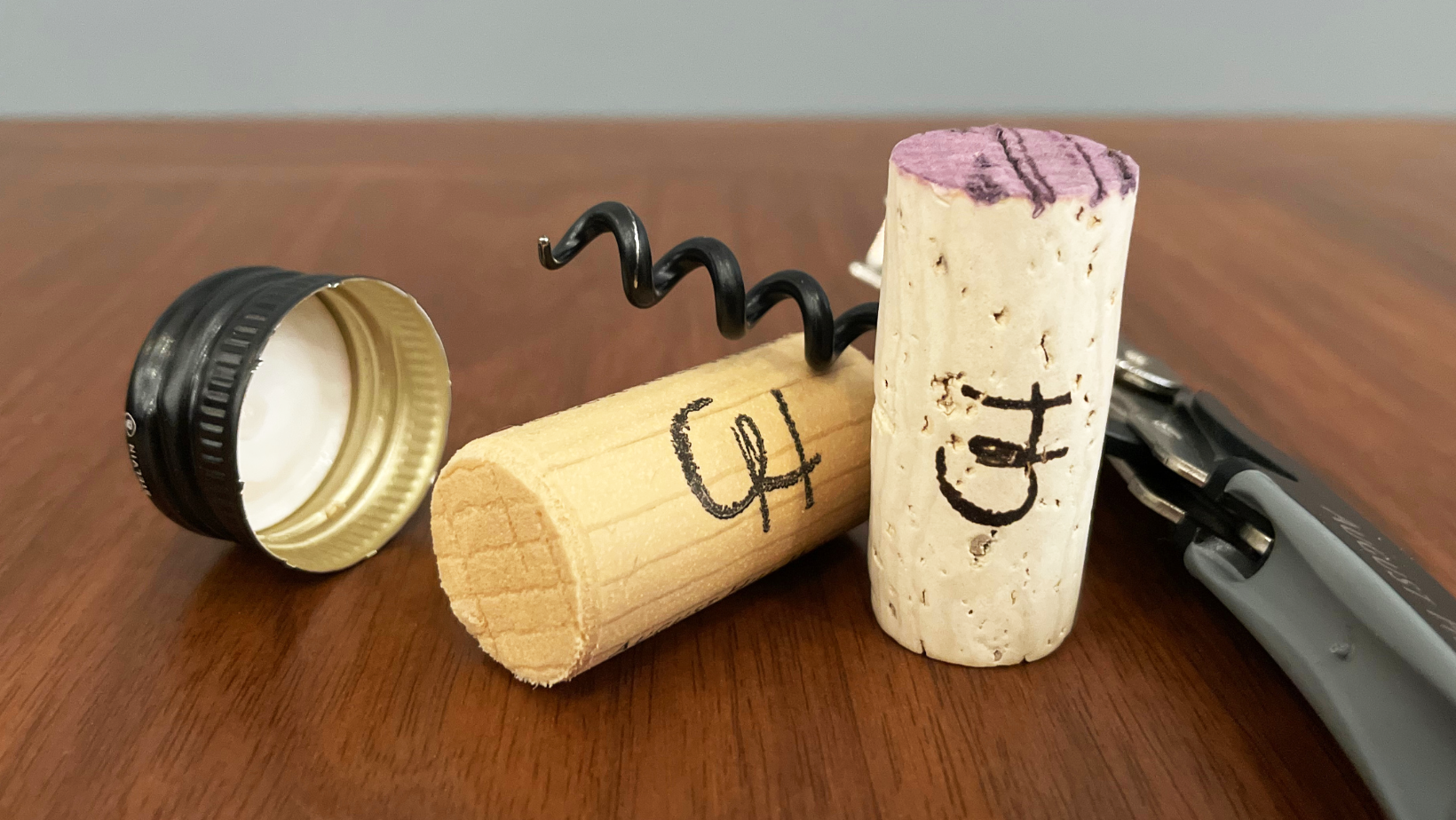What’s the deal with natural corks, synthetic corks, and screw caps? When do we use each wine enclosure, and why? Well, they all have their advantages. Let’s uncork the genie and dive into the bottle!
Natural Corks
Traditional and classic, natural corks provide an airtight seal that permits a small amount of oxygen into the bottle. This allows wines to age gracefully, while adding a touch of elegance to the uncorking experience. Natural corks expand to fit the bottle’s neck, granting the wine to evolve over time in the bottle, thus enhancing its complexity and character.
Because our Chambourcin Reserve undergoes aging, we use natural corks for this wine.
Synthetic Corks
Providing a consistent, immovable seal, synthetic corks are used for wines made to be enjoyed young. They eliminate the risk of cork taint, while maintaining the aesthetic appeal of natural cork closures. A synthetic cork’s durable and reliable seal preserves the wine’s flavor and quality, ensuring a consistent taste experience with every bottle.
As our Nouveau is primarily enjoyed young, we use synthetic corks for this wine.
Screw Caps
No corkscrew? No problem! Modern and convenient, screw caps offer easy access to your favorite wines without that need for a corkscrew. These enclosures are known for their ability to preserve the freshness of wine by minimizing exposure to oxygen. As a result, screw caps consistently preserve the wine’s flavors and aromas.
Best enjoyed right away, our Riesling is sealed with a screw cap.
And there you have it! Welcome to the world of wine enclosures. No matter which seal is used, rest assured our wines are kept fresh, tight, and ready to delight!
